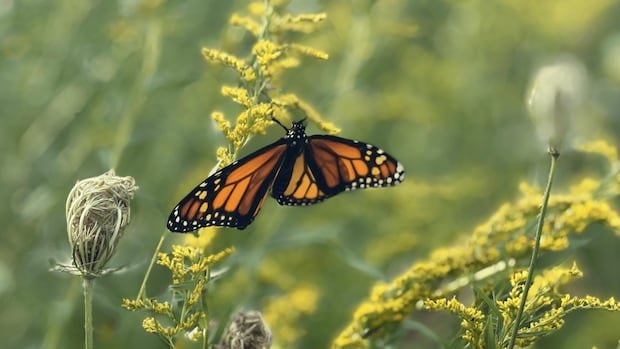This year’s summer drought and unprecedented heatwave might impact the autumn migration of the endangered monarch butterfly, a concern raised by experts from the University of Ottawa. The extreme weather conditions could be hindering the production of nectar essential for the monarchs’ journey to Mexico.
Associate professor Heather Kharouba emphasized that climate change stands out as the primary threat to monarchs, particularly since 2005. Data from Mexico indicates that adverse weather conditions significantly affect the monarch population.
The monarch butterfly, a well-known species across Canada except for Newfoundland and Labrador, has been classified as endangered by Climate Change and Environment Canada since December 2023 under the Species at Risk Act. Collaborating with the university, the agency is investigating the impact of rising temperatures on crucial plant species for monarch survival.
In a study conducted in Kinburn on the outskirts of Ottawa, Kharouba’s team has set up approximately 40 netted cages around various plant species, with half of them enclosed in mini-greenhouses to simulate climate change effects by raising temperatures slightly. Jenna Boomhower, a master’s student leading the project under Kharouba’s guidance, highlighted the importance of monitoring flower behavior as it directly affects the butterfly population.
During a summer heatwave, temperatures inside the mini-greenhouses reached 50°C, compared to 45°C in the control cages. Monarchs are placed in the netted cages to feed on plant nectar, with researchers monitoring their weight and the nectar quality to assess energy reserves.
The dry summer unexpectedly added complexity to the study, with Boomhower noting that the drought led to thicker nectar, posing challenges for monarchs in extracting it with their proboscis. The lack of moisture also affected plant survival, causing some to wither and die.
The ongoing experiment will be analyzed in detail after concluding on September 15. Kharouba’s team collected over 300 monarchs, with some undergoing further analysis while the rest will be released for migration.


